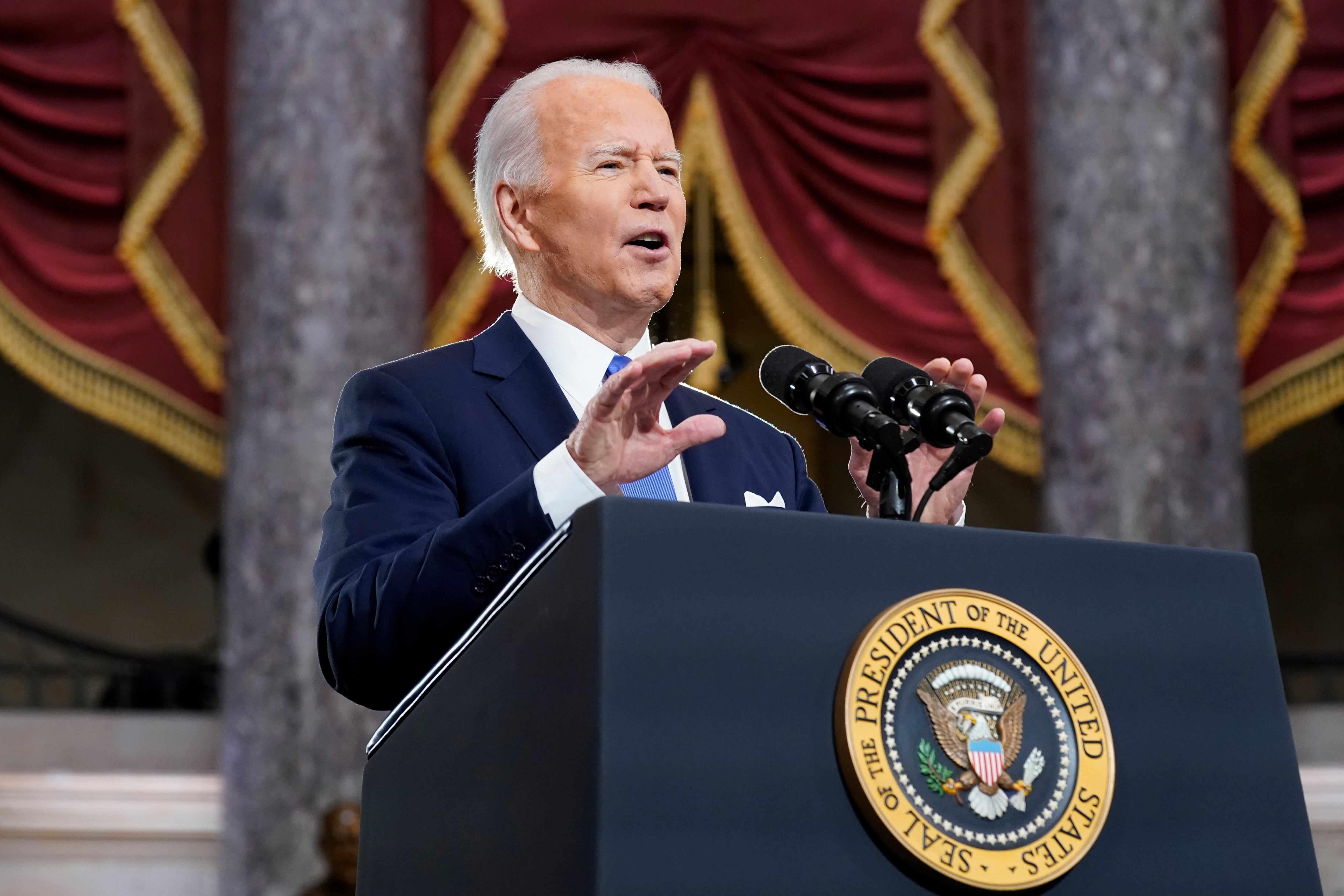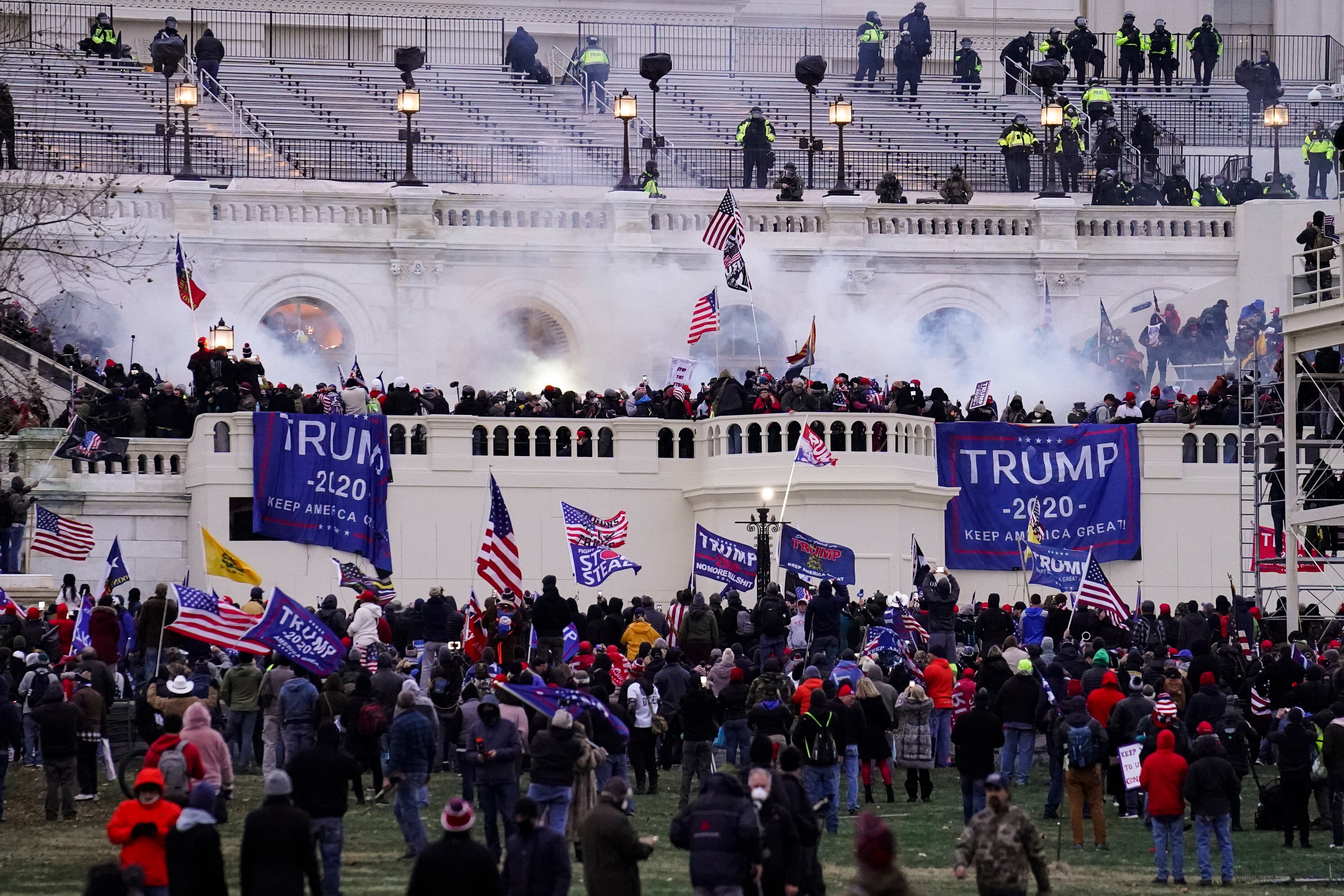President Joe Biden addressed the nation Thursday from the U.S. Capitol Building, as it marks one year since rioters breached the building in a deadly attack.
Biden spoke about the future of the nation in his prepared remarks, encouraging the American people to turn away from partisanship and lies and be a country of truth.
“Are we going to be a nation that accepts political violence as a norm?” Biden asked. “Are we going to be a nation where we allow partisan election officials to overturn the legally expressed will of the people?”
The answer to those questions, according to the president’s remarks, should be a decisive no.
“The way forward is to recognize the truth and to live by it,” the president said.

At Wednesday’s White House press briefing, Press Secretary Jen Psaki provided further insight into the president’s mindset ahead of his address.
“He will also speak to the work we still need to do to secure and strengthen our democracy and our institutions, to reject the hatred and lies we saw on January 6th, and to unite our country,” Psaki said.
The president’s remarks and this somber anniversary come at a time when many Americans still doubt the legitimacy of the Biden presidency, despite his decisive win in the 2020 election.
In a rush of polls released ahead of the commemoration of the attack on the Capitol, it’s clear Americans are deeply divided in their views of the insurrection.
In an ABC News/Ipsos poll, 25 percent of Americans believe the rioters were “protecting democracy.” While Democrats are nearly unanimous in their agreement that the rioters were “threatening democracy,” Republicans are much less united. More than half, 52 percent, of Republicans believe the protestors were protecting democracy, while 45 percent said the attack threatened democracy.

Political affiliation can also help predict the words used to describe the events. According to the University of Massachusetts Amherst, more than two-thirds of Democrats refer to those who participated in the attack as “insurrectionists”, “rioters” or “white nationalists.” Conversely, nearly the same portion of Republicans, 62 percent, call them “protestors.”
Multiple polls also point to concerns among the American people about future political violence, with a CBS News poll revealing that nearly 70 percent of Americans do not believe the riot was an isolated incident. An Axios poll found the same: About half of Republicans and 70 percent of Democrats say more events like the Jan. 6 riot are likely.
Even the legitimacy of the Biden presidency remains in question for many: consistently, in poll after poll over the past year, around one-third of Americans do not believe that Biden is the legitimate president. This has remained unchanged since before the Jan. 6 attack.

It is this America Biden addressed Thursday, calling for Americans to turn away from lies and face the truth - at a time when Americans cannot even agree on what the truth is.
“At this moment we must decide what kind of nation we are going to be,” Biden urged. “Are we going to be a nation that lives not by the light of the truth but in the shadow of lies?”
The president said plainly: “We cannot allow ourselves to be that kind of nation.”
Updated January 6, 2022 at 9:49 am ET nothing President Biden's remarks.












